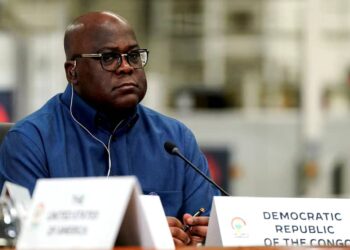By John Ikani
The World Bank has said Nigeria may have one of the highest inflation rates globally in 2022, with increasing prices diminishing the welfare of Nigerian households.
It has also warned that Nigeria’s debt, which may be considered sustainable for now, is vulnerable and costly.
The bank said these in the November edition of its Nigeria Development Update.
On inflation, the Washington-based global financial institution said Nigeria is projected to have one of the highest inflation rates globally and the seventh highest among Sub-Saharan African countries in 2022.
According to the global financial institution, high inflation hampers the country’s attempt to achieve economic recovery and erodes the purchasing power of most vulnerable households.
The bank further highlighted the adverse effects of inflation on Nigeria, which include pushing eight million Nigerians into poverty, and the possible disruption of consumption, investment and saving decisions, among other consequences.
It also said that inflationary pressures were trigged by multiple demand and supply shocks.
The document read in part, “Inflationary pressures are being generated by multiple demand and supply shocks. Supply shocks arising from disruption of supply chains linked to COVID-19 and associated containment measures have eased, but security issues, border closures, and limited access to markets continue to fuel inflation.
“The current mix of monetary, fiscal, foreign exchange, and trade policies also plays a prominent role as a driver of inflation. Trade and FX restrictions, including the closure of land borders starting in August 2019, have increased prices for food and consumer goods, and imports of over 40 goods, including many staple foods, are currently ineligible for FX through formal windows.
“Nigeria’s exchange-rate management has resulted in the rise of parallel rates, which are closely linked to food-price dynamics. Unable to access FX through the official exchange-rate window, businesses seek FX on the parallel market and other alternative sources.
“The parallel rate influences their business decisions, and fluctuations in the parallel rate pass through to market prices for goods and services. Moreover, monetary policy has not prioritized controlling inflation, and the monetary financing of fiscal deficit undermines the effectiveness of policies to contain demand-side inflationary pressures.”
On Nigeria’s rising debt profile, the World Bank said “Nigeria’s debt remains sustainable, albeit vulnerable and costly, especially due to large and growing financing from the Central Bank of Nigeria.
“While currently the debt stock of 27 per cent of the Gross Domestic Product is considered sustainable, any macro-fiscal shock can push debt to unsustainable levels.
“However, the debt to the GDP in Nigeria is rising quickly, and the total stock of debt in absolute value has almost doubled between 2016 and 2020, and without a policy change is expected to reach 40 per cent of the GDP by 2025.”
The bank further expressed concerns over the nation’s cost of debt servicing, which according to it, disrupts public investments and critical service delivery spending.
“The cost of debt servicing is also a concern as it is potentially crowding out public investment and critical service delivery spending. Interest costs have been above two per cent of the GDP since 2018, reaching 2.4 per cent of the GDP in 2019 and then falling to 2.2 per cent of the GDP in 2020.
“Cost of debt is high as Federal Government also resorts to overdraft (Ways and Means financing) from the CBN to meet in-year cash shortfalls. At end of 2020, the stock of the CBN Ways and Means financing was estimated at N13.1tn or 8.5 per cent of the GDP,” it stated.
It, however, said that the Federal Government was making efforts to negotiate terms with the CBN in order to convert the stock of overdraft financing into a long-term debt instrument, which would lower the cost of debt for the government and enhance fiscal sustainability over the medium long term.



































